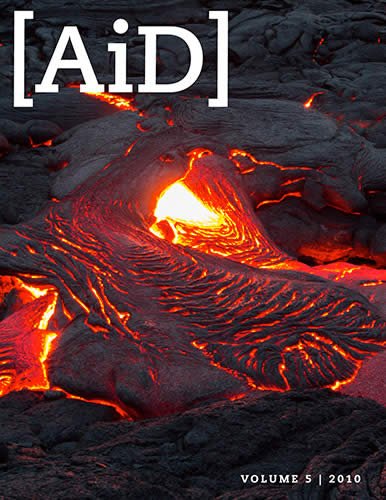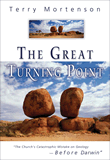
Summary of a Response to “PCA Geologists on the Antiquity of the Earth”
From Modern Reformation 19(3), May/June 2010
Eight geologists, writing in Modern Reformation (magazine of Dr. Michael Horton’s White Horse Inn ministry), argue specifically that the Presbyterian Church in America (PCA), and by inference committed Christians in all other denominations, should reject Noah’s Flood as being geologically insignificant and adopt an old-earth view of Genesis.1 That is, they claim, because science, acting as “general revelation,” has demonstrated Earth’s antiquity (4.6 billion years) beyond any reasonable doubt. To support this assertion, they present two technical arguments as examples.
The PCA, like many other conservative denominations, is currently divided over Genesis. As in other churches, there seems to be a fundamental divide between the laity and the intellectual elites; most of the former favoring biblical authority and many of the latter insisting on the final authority of secular science with regard to the origin and history of the creation. This response to their arguments was written by an elder in the PCA who is also a PhD geologist. It is a short summary of an in depth, point-by-point rebuttal which is available here.
The Case for an Old Earth
One of the most interesting aspects of the eight geologists’ case is what is omitted. The PCA is a confessional church with a high view of biblical inerrancy and authority. Yet no arguments are made from the Bible or the Westminster Confession of Faith. Instead, these geologists believe that science interprets Scripture. Their points can be summarized as follows:
- Prominent theologians accept an old-earth interpretation of Genesis.
- The Copernican Revolution is an appropriate analogy to the old-earth/young-earth debate; i.e., the church is embarrassing itself by not accepting science.
- Geologists have proven the Earth is 4.6 billion years old, and virtually all geologists, including many devout Christians, accept that conclusion.
- Naturalism, the worldview, is not required by the old-earth view.
- The geology of Lake Suigetsu in Japan demands millions of years.
- Modern plate motion measurements confirm the 180 million years of same-rate spreading of the Atlantic Ocean crust predicted by geology.
- This geological evidence of great age, if not really true, creates a serious theological problem: God’s honesty. The young-earth view makes God a “deceiver” because general revelation is so clear.
- The young-earth view is a practical obstacle to faith in Christ because it is so obviously wrong, and particularly undermines the faith of children.
The first four points set the stage for the fifth and sixth points, which are the heart of their article. The conclusions they draw in the last two are serious accusations. There is nothing new within this article—any well-read creationist will recognize the same tired arguments that have been answered many times. However, truth is always worth defending, and since these points reflect an apparent ignorance of creationist literature, we will reiterate the answers with links to more detailed discussions.
Answering the Arguments
1. Prominent theologians accept an old-earth interpretation of Genesis.
Truth is not determined by majority vote, and many theologians have been wrong in their interpretation of Scripture. Additionally, there is a serious theological error; Christians have a standard of truth: the Bible. Even though they claim to support inerrancy of the Bible, their distortion of the clear meaning of the biblical text leads us to believe that their professed belief in inerrancy is selective or perhaps camouflage.
2. The Copernican Revolution is an appropriate analogy to the old-earth/young-earth debate.
Creationists have repeatedly refuted the propaganda, dating from the Enlightenment, that the Copernican controversy was (1) an embarrassment to the Church, and (2) analogous as such to the origins debate [see Get Answers: Geocentrism]. Typically, this canard is used by atheists and agnostics to attack Christianity, focusing on Galileo’s supposed persecution by intolerant religious bigots. Their use of it is also flawed because it fails to recognize that timeless principles of nature amenable to observation and experimentation are quite different from speculation about unique unobserved historical events [see the difference between “operational” (or “normal”) science and “origins” science in Get Answers: Science]:
Similarly, when scientists (such as geologists, paleontologists, and evolutionists) sometimes attempt to establish the spatial and temporal determinants of particular past events or to describe a particular sequence of such events, they cease to be engaged in scientific inquiry and become engaged in historical research, sometimes called natural history. Though both history and science are investigative modes of inquiry that submit their conclusions to the test of experience (i.e., the data obtained by investigation), history by its method can answer questions that science cannot answer; and science by its method can answer questions that history cannot answer (Adler 1993, p. 15).
3. Geologists have proven that the Earth is 4.6 billion years old, and virtually all geologists, including many devout Christians, accept that conclusion.
Again, truth is not determined by majority vote, and the majority of scientists have been wrong many times in the history of science and geology. For example, several decades ago, and for a more than a century before that, “all” geologists thought Lyellian gradualism was the fundamental principle of their discipline [see Untangling Uniformitarianism]. Today they reject it. As we know from Romans 3:4, only God is infallible. Thus, His Word trumps the opinions of every expert (or even a majority of experts) that asserts otherwise.
4. Naturalism, the worldview, is not required by the old-earth view.
Christian apologists for the acceptance of millions of years and evolution have always been uncomfortable with their secular bedfellows [see several examples of compromise, and how they are detrimental]. These geologists attempt to restrict “naturalism” to a method of science, while ignoring the metaphysical commitments of secular science [see Philosophical naturalism and the age of the earth: are they related? and Jerry Bergman’s book Slaughter of the Dissidents]. In reality, Naturalism is the worldview that gave birth to and empowers secular natural history [see God & Natural Law and my 2004 paper “Beyond Scientific Creationism”] and no amount of sidestepping can avoid that obvious truth.
5. The geology of Lake Suigetsu in Japan demands millions of years.
Much is made of the agreement in dating methods, including varves, C-14, dendrochronology, and others at this locale. However, each of these methods is flawed [see “Radiometric Dating: Back to Basics”] and agreement is often driven by psychology, not science [see “Why Don’t Many Christian Leaders and Scholars Believe Genesis?” and “Peer Pressure and Truth”]. The argument for age from the strata underlying the lake ignores the logical option that they can as easily be interpreted as products of the Flood, just like the geology of any other area [see Andrew Snelling’s Answers magazine series, Six main geologic evidences for the Genesis Flood].
6. Modern plate motion measurements confirm the 180 million years of same-rate spreading of the Atlantic Ocean crust predicted by geology.
Again, the supposed agreement between methods boils down to data selection and unsupportable and highly questionable assumptions. To demonstrate their point, a dense grid of infallible dates would be needed. As creationists have shown, the dating methods are not reliable, so the exercise is impossible at the outset. Even secular researchers have noted the uncertainty of sea-floor dating studies.2 Modern measurements from space cannot prove 180 million years of constant spreading; at best, they can only demonstrate present-day motion or deformation. The assumption of a rigid uniformitarianism is required to extrapolate any modern measurement back into the unobserved past.
7. The apparently proven scientific evidence of millions of years creates a serious theological problem: God’s honesty. The young-earth view makes God a “deceiver.”
Incredibly, theologians for thousands of years never detected this “serious” theological conundrum found by these eight geologists. Even in the early church when battles were fought with Greek philosophy that advocated a cosmos much older than the Bible or even an eternal universe, theologians recognized that ex nihilo creation logically included an appearance of age. Thus, this issue is a red herring, not a real problem. Ironically, it refutes a main point of these geologists; that the debate is one of science, not theology. Biblical scholars have addressed this claim of God’s “deception” over and over [see “Did God Create the Earth to Look “Old”?,“ “How Old Does the Earth Look?,” New Answers Book 3 chapter 15], yet it keeps popping up and fails to refute the creationist answer that has been in print since the early days of modern creationism.
8. The young-earth view is a practical obstacle to belief because it is so obviously wrong, and it particularly undermines the faith of children.
Recent research [see Already Gone] has shown the opposite; that it is the indoctrination into secular natural history and evolution that has led Christian youth away from the church. Compromise leads to compromise; standing on God’s truth instead, as Christ taught, sets us free.
Conclusion
These eight geologists are members of the PCA. Ironically, they cannot even see the application of their church’s own confessional standard to this issue. The Westminster Confession of Faith (I-IV) states:
The whole counsel of God concerning all things necessary for His own glory, man's salvation, faith and life, is either expressly set down in Scripture, or by good and necessary consequence may be deduced from Scripture: unto which nothing at any time is to be added, whether by new revelations of the Spirit, or traditions of men . . . .
And in IV-I, it states:
It pleased God the Father, Son, and Holy Ghost, for the manifestation of the glory of His eternal power, wisdom, and goodness, in the beginning, to create, or make of nothing, the world, and all things therein whether visible or invisible, in the space of six days; and all very good.
Thus, their argument falls flat, in its strategy, its failure to address the real questions, and even in its so-called “scientific” proofs.
References
Adler, M. J. 1965. The conditions of philosophy. New York: Athenium Books.
___. 1993. The four dimensions of philosophy. New York: Macmillan.
Reed, J. K. 2001. Natural history in the Christian worldview. Chino Valley, Arizona: Creation Research Society Books .
Bergman, J. 2008. Slaughter of the Dissidents. Southworth, Washington: Leafcutter Press.
Reed, J. K., P. Klevberg, and C. R. Froede, Jr. 2006. Towards a Diluvial Stratigraphy. In Reed, J. K. and M. J. Oard (editors). The Geologic Column: Perspectives within Diluvial Geology. Chino Valley, Arizona: CRS Books.
Pratt, D. 2000. Plate tectonics: a paradigm under threat. Journal of Scientific Exploration 14(3):307–352.
Smoot, N. C. 2001. Earth geodynamic hypotheses updated. Journal for Scientific Exploration 15(1):464–494.
Keith, M. 2001. Evidence for a plate tectonics debate. Earth Science Reviews 55:235–336.
Footnotes
- Campbell, D., L. D. Campbell, C. Cates, G. Davidson, K. Long, R. F. Mercer, K. Ratajeski, D. A. Young. 2010. PCA Geologists on the Antiquity of the Earth. Modern Reformation 19(3), May/June 2010. http://www.modernreformation.org/default.php?page=articledisplay&var1=ArtRead&var2=1137&var3=issuedisplay&var4=IssRead&var5=112
- Pratt, D. 2000. Plate tectonics: a paradigm under threat. Journal of Scientific Exploration 14(3):307–352.
Recommended Resources

Answers in Genesis is an apologetics ministry, dedicated to helping Christians defend their faith and proclaim the good news of Jesus Christ.
- Customer Service 800.778.3390
- Available Monday–Friday | 9 AM–5 PM ET
- © 2026 Answers in Genesis



